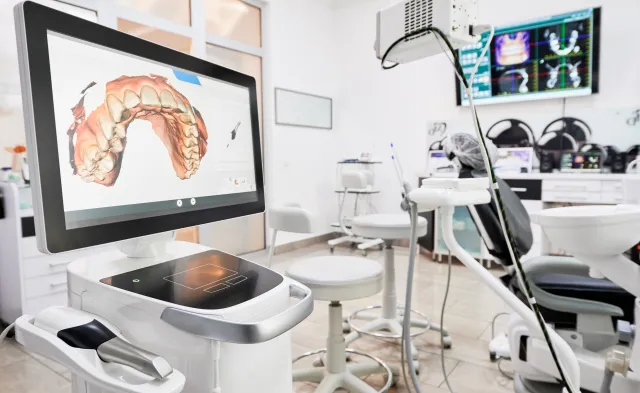Latest
What to Expect From Your First Nursing Simulation
Apr 6, 2019

Many students don’t know what to expect from their first nursing simulation. While the idea of working with a mannequin might feel strange, today’s patient simulators are more life-like than ever before, making for an incredibly realistic experience that prepares you for what you’ll encounter in clinical and your nursing career.
In the sim lab, you’ll practice responding to a variety of different clinical situations – from broken bones to more complex conditions like seizures or diabetic shock. You’ll learn how to perform a proper assessment, deal with high-stress situations and read subtle patient clues that can inform the type of care and treatment that is needed.
Best of all, sim lab is a place where you can make mistakes without worrying about potentially negative outcomes for a patient.
Here’s what you can expect from your first nursing simulation:
1. Learn how to provide holistic care
Sim lab is about more than practicing clinical skills; it’s also about learning how to interact with your patients so you can provide a higher level of care. Part of a nurse’s job is to look beyond the immediate injury or illness to establish the root of the problem, as this can shift the plan of care significantly.
It’s important to ask the right questions and approach each situation with empathy. For example, maybe you’ve determined that a child’s asthma condition is related to an allergy to the family dog. It’s part of your job to educate the parents so that the child’s condition does not worsen. Sometimes, those are uncomfortable conversations to have.
As nurses, we often have to navigate tough conversations with patients. While you'll learn about communication skills in lecture, it does take practice. In sim lab, your instructors will observe your interactions with patients and offer you tips for better ways to communicate based on their own experiences as clinicians.
2. Revisit key skills and concepts
Patient simulators can be programmed for a variety of different situations – including ones that you haven’t encountered before. You might be forced to draw on concepts and techniques you learned in your early courses, or skills you haven’t had a chance to practice yet in clinical.
Your instructors aren’t trying to trip you up; they just want to make sure that you’re prepared to enter the workforce and start working with real patients. This is the perfect opportunity to brush up on key skills or concepts that might have fallen through the cracks along the way.
3. Prepare for the unexpected
When you’re learning a new nursing skill, you often learn about it in a perfect world. In reality, complications can happen. In an emergency situation, you also have to think quickly. You might only have a split second to make a life-saving decision, but anxiety and fear can make it difficult to assess a situation and take action.
The solution is to prepare new nurses for the unexpected – and sim lab is the perfect place to throw a few curveballs. Be prepared for unexpected developments or complications. It’s important to practice responding in less-than-ideal situations so that you won’t be caught off guard in a critical moment with a real patient.
4. Make mistakes in a safe space
If there’s one thing to keep in mind during sim lab, remember that it’s okay to make mistakes. It is just a practice run, after all. You’re still learning and you’re not going to be perfect. You might get some concepts right away, and other times you need additional practice.
Be prepared to listen to your instructor’s feedback and don’t take it personally. Your instructors want you to succeed. They can help you see what you’re doing well and what you still need to work on and provide tips to help get you up to speed.
At Herzing University’s Brookfield campus, students have the opportunity to practice these skills on a new cutting-edge simulation mannequin named Pediatric Hal, one of the first patient simulators that can display range of facial expressions and complex emotions. His life-like eyes even follow students’ movements around the room, forcing students to make eye contact with Hal and interact with him as if he were a real person.
“We are really excited that our students have the opportunity to work with such a high-tech simulator. With Pediatric Hal, the training possibilities are endless,” says Magreger. “As a nurse, you really have to learn to do it all, and sim lab is a fantastic playground to practice your nursing skills and build confidence.”
Learn More About Our Nursing Programs
BLS pay estimates calculate the median annual wage for various occupations. Per the BLS the median wage for an occupation is: "The wage at which half of the workers in the occupation earned more than that amount, and half earned less. Median wage data are from the BLS Occupational Employment and Wage Statistics survey." Bureau of Labor Statistics (BLS), U.S. Department of Labor, Occupational Outlook Handbook 2024. BLS median wage estimates do not represent entry-level wages and/or salaries. Multiple factors, including prior experience, age, geographic market in which you want to work, and degree level and field, will affect career outcomes, including starting salary and earnings as an experienced employee. Herzing neither represents that its graduates will earn the median salaries calculated by BLS for a particular job nor guarantees that graduation from its program will result in a job, promotion, particular wage or salary, or other career growth.
Latest
Recent Blog Posts
Subscribe to our Newsletter
Get the latest news you need to know, from study hacks to interview tips to career advancement. Have it delivered right to your inbox biweekly.








